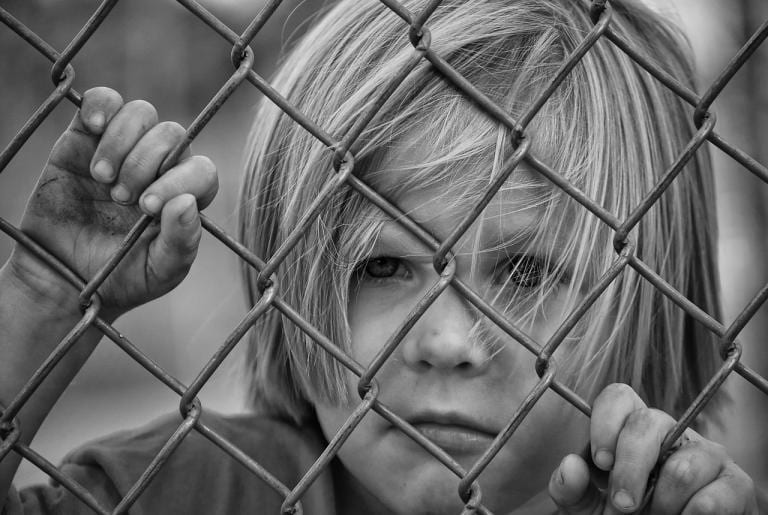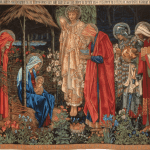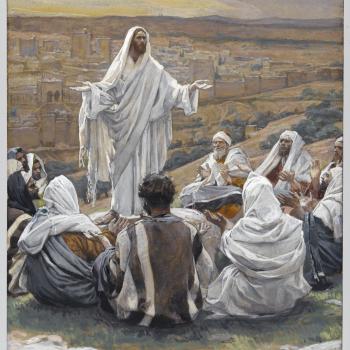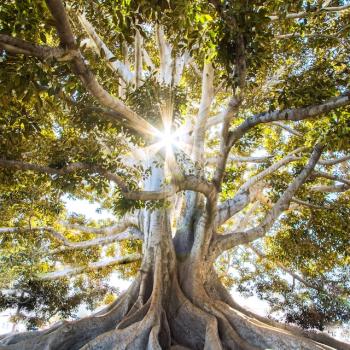These are dark days, darker for some than for others. Dark, for some, in grievous loss of a child; dark, for others, in job loss and illness; darker still for trafficked girls and Central Americans caught in immigration limbo and the homeless single parent and the broken family and the desperate of all sorts. Darkest of all for those without any love.
Advent bids us to embrace the darkness, not as a thing in itself to relish, but as the place of hope. Darkness is not the new normal.
The psalmist cries “out of the depths” (Ps 130). Pits. Dark places. Helloooo! Help! It is the only prayer that we’re left with when we’re in the depths. In our places of piercing agony or even banal bleakness, we have very little left in the way of spiritual sophistication. It is the prayer of a child. Help me! Annie Lamott calls it “the great prayer … the hardest prayer.” Perhaps not the greatest prayer, but certainly one of the hardest, for it is an act of utter surrender, utter helplessness, and utter rejection of the darkness as the new normal—that is, it is a prayer of hope.
There in the depths, we watch for the Lord, “more than watchmen for the morning.” I imagine the watchmen posted on the city walls, the city in desperate straits wondering what the new day will bring—more enemies? A rescuer? I’ve had my own days of waking up to even more enemies assaulting the city walls. “You thought yesterday was bad!” has been a reality too many times.
But even still, I post myself on the city walls. I watch for the morning. I know generally in what direction the sun will rise, but its actual arrival is always sudden. There’s a sense of anticipation, a gradual lifting of utter blackness even when there’s still not enough light to see—what is going on? I peer into the opaque sky—today? Will relief come today?
Perhaps you, too, wait, desperately and yet hopefully, for the dawn. Today, perhaps? Will today bring a new, positive development in the cancer cycle? A breakthrough in the hostility between husband and wife? A reconciliation with the wayward child? A new opportunity? A new vision? A spiritual awakening?
A friend once told me about her child, graduating from high school, who tossed a college brochure in the trash can—not interested. She had other opportunities, other interests. And then, later that day, something “clicked” inside her, and she dug through the trash and retrieved the brochure with a willingness to reconsider that school. That quirky reversal led to multiple other decisions that have shaped her life.
A simple, inconsequential story, really. No suffering involved. You know stories like this, and we mostly shrug them off as serendipity. And yet, what is that “click”? What is that shift, that sudden light inside that moves us? Is that not the glimmer of a dawn?
When you pray, do you not pray for these “glimmers”? Do you not watch—relentlessly and hopefully and even desperately—for these movements of the Spirit in your world? And watching, waiting, praying, are you not rejecting the darkness as the new normal?
I have a long list of the “glimmers” I’m watching for. Most of them are personal, familial, friendship-based. But can we not, even this Advent, hope and watch and pray for a dawn in our national civic life, in Washington, in our common conversations, and at our borders? Darkness is not the new normal.
“In him was life, and the life was the light of men. The light shines in the darkness, and the darkness has not overcome it.”
Come, Lord Jesus, come!
Image by Lisa Runnels, Pixabay


















